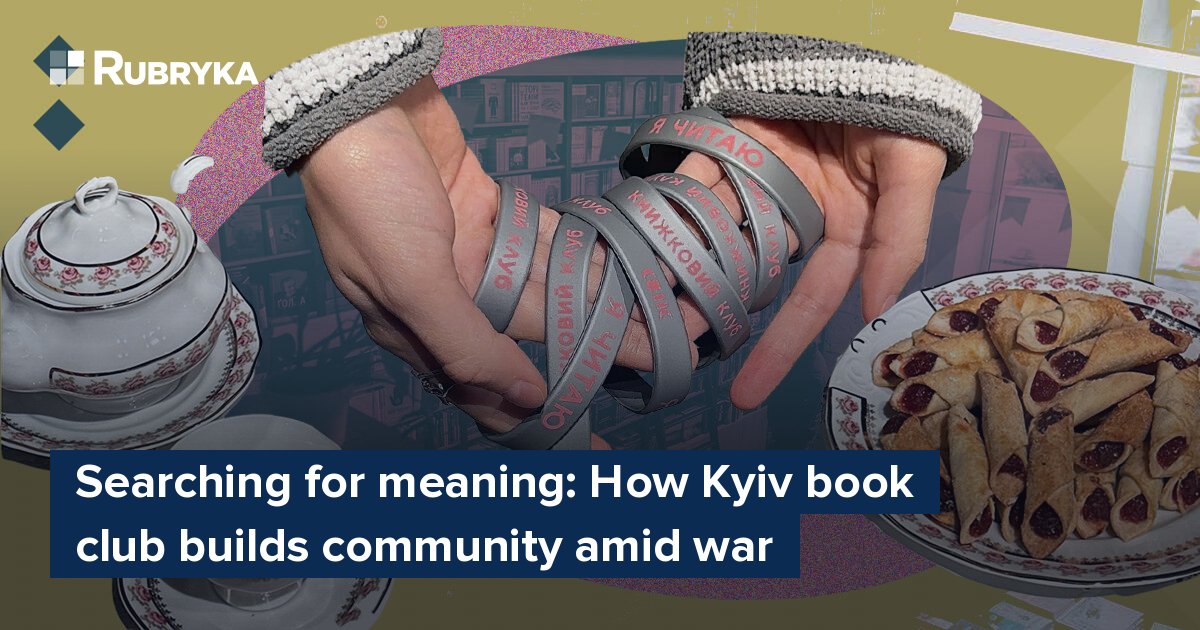
What's the problem?
Since the start of Russia's full-scale war in 2022, the priorities and values of many Ukrainians have undergone a profound transformation. Amid constant enemy shelling and loss, safety became paramount. At the same time, people began asking themselves: How do we maintain balance, keep our spirits up, and stay connected to ourselves?
What's the solution?
One answer has been books. During the war, books have become a kind of weapon, providing readers with inspiration, comfort, and support. A 2023 study by the Ukrainian Institute for the Future backed this trend.
Before the full-scale invasion, Ukrainians mainly read for personal growth and relaxation. Whereas, during the survey, 49% of respondents said reading was a way to preserve themselves, especially during the war. Meanwhile, 42% found reading taught them to make better decisions, even in challenging circumstances. Moreover, 24% and 21% noted that reading Ukrainian literature served as a form of resistance and a way to support Ukrainian culture economically.
Ukrainian publishers and bookstores have played a vital role in this shift. Despite the war, they've continued their work and become part of a broader cultural resistance and recovery. One example is the SENS bookstore (its name translates to "meaning" in English), which opened in Kyiv just before the full-scale invasion.
SENS is more than a place to buy books — it's a creative hub where people can gather and exchange ideas. It hosts cultural events, supports charity and volunteer initiatives, and organizes festivals, lectures, and discussions. Among its standout projects is its book club, supported by the Ukrainian Book Institute.
We spoke with Anastasiia Yevdokymova, the moderator of the SENS book club, to uncover what book clubs mean for Ukrainians, why they're needed, and how they foster conversations about Ukrainian literature.
How does it work?
Book club as a therapy session
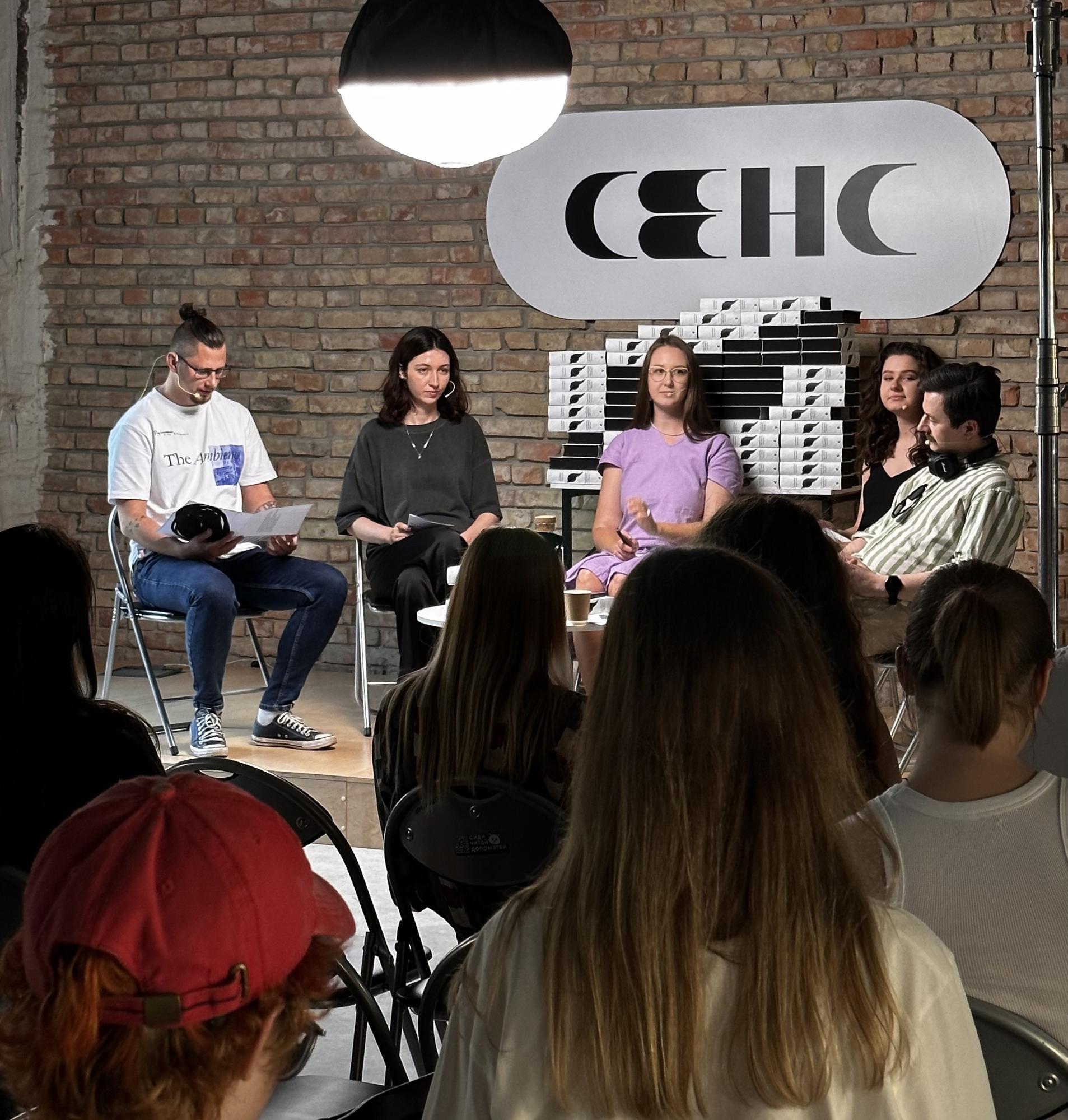
A book club meeting. Photo: SENS
The SENS book club works like any typical book club — it brings literature lovers together to discuss a pre-selected book. Meetings are held at a round table with active participants and an engaged audience. Literary scholar Anastasiia Yevdokymova moderates the discussions, asking questions and guiding the conversation. Each gathering offers an opportunity to dive deeper into a text, discover new perspectives, and exchange ideas.
"The SENS book club exists to unite people around Ukrainian literature as a shared value," Anastasiia Yevdokymova shares. "For over a year and a half, we've been reading and reinterpreting works by Ukrainian authors — both classic and contemporary. During this time, we've built quite a large community, where people communicate with each other between meetings through a chat group and eagerly attend live discussions."
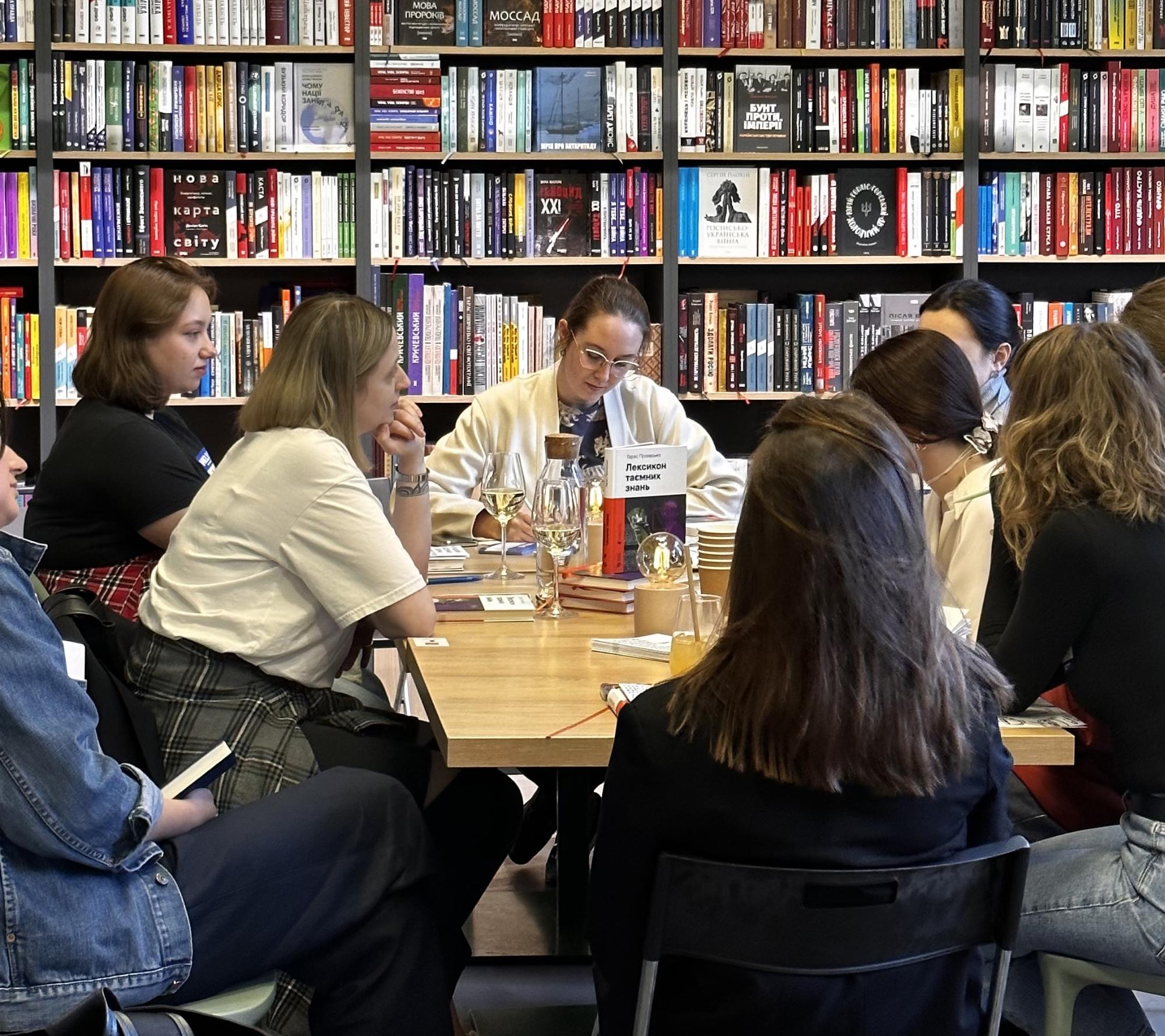
Reading Taras Prokhasko's prose collection "Lexicon of Secret Knowledge." Photo: SENS
The club meets monthly. The discussions revolve around carefully selected books, which the bookstore founders call the crème de la crème of Ukrainian literature. Among the titles discussed are Voroshilovgrad by Serhiy Zhadan, The Tale of the Sanatorium Zone by Mykola Khvylovyi, No Entry to the Performance Hall after the Third Bell by Oksana Zabuzhko, A Home for Dom by Viktoria Amelina, and The Kaidash Family by Ivan Nechui-Levytskyi. These works, spanning classic to postmodernist literature, evoke emotions, provoke thought, and, for some, even offer strength and motivation to face personal challenges.
"Modern book clubs serve many purposes: entertainment, education, meeting like-minded people, making new friends, and even functioning as a kind of therapy session," Anastasiia Yevdokymova explains. "They respond to people's need to gather, to find meaningful connections. Book clubs teach us to reflect and engage in thoughtful discussions."
A grand adventure: What the book club read in October
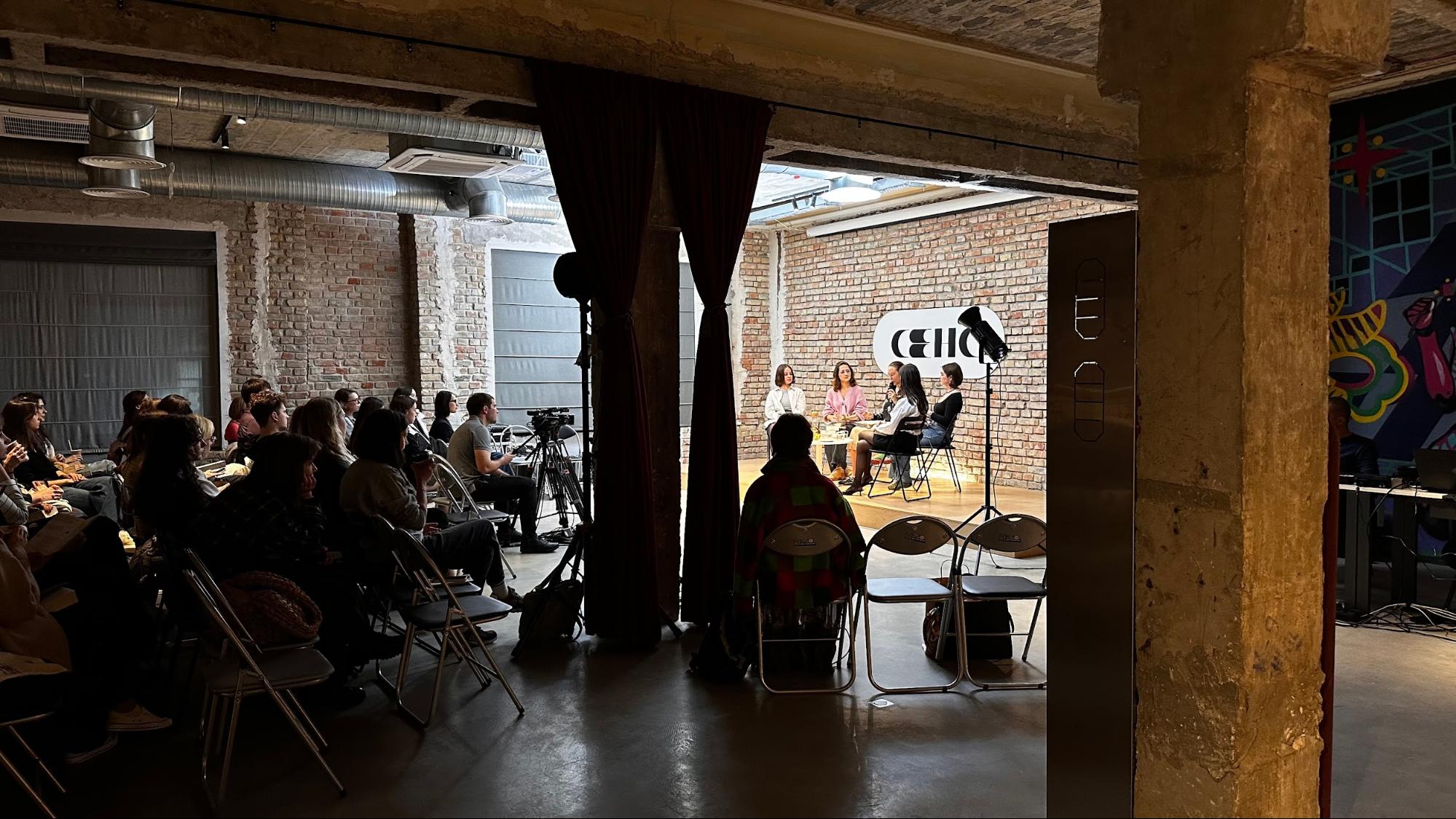
The first meeting-discussion of Iryna Vilde's novel, The Richynsky Sisters. Photo: SENS
Since its inception, the SENS book club has exclusively focused on Ukrainian literature. This commitment reflects the bookstore's collective decision and strategic mission. The club alternates between modern books — fresh releases or longstanding favorites — and timeless classics. For instance, Katanankhe (2024) by Sofiia Andrukhovych and The Richynsky Sisters (1965) by Iryna Vilde have both been featured.
In October, the book club embarked on a grand adventure with Iryna Vilde's family saga, The Richynsky Sisters. This choice wasn't accidental — the classic novel is a multilayered exploration of national identity, social change, and women's lives amid historical events. Its three volumes, published as separate books, span over 1,500 pages. To tackle such an extensive text together, the club adopted a creative approach: they paired reading with journaling, chatting between in-person meetings, and exploring supplementary materials about the novel prepared by the SENS team.
"It's less about marathon reading and more about 'close reading,' allowing us to delve into the book gradually and deeply," says the book club moderator Anastasiia. "This approach appeals to those ready for an immersive experience. While it might seem daunting for today's readers, who often consume information quickly, the format is accessible to anyone thanks to the community's shared support and guidance from the SENS team."
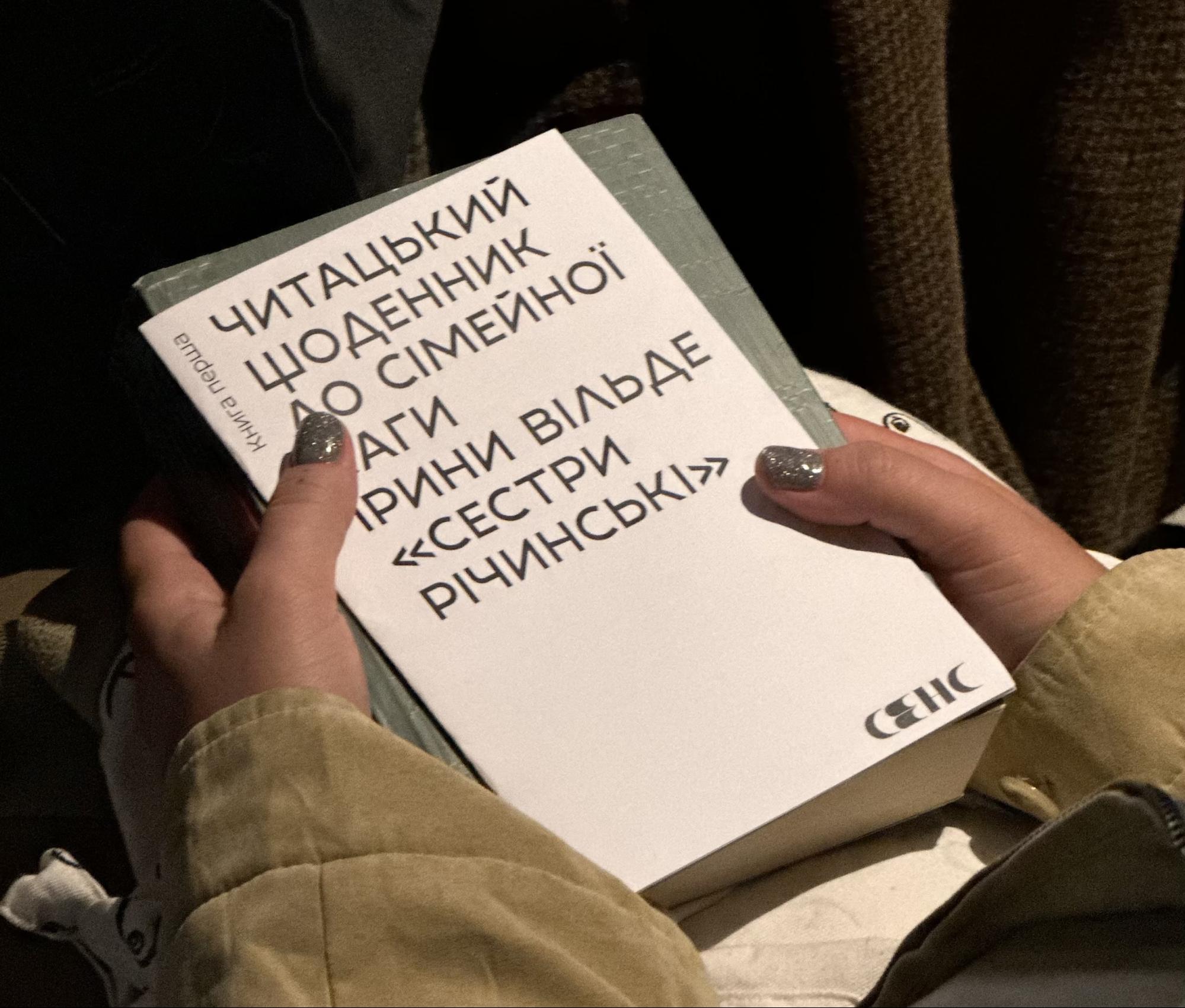
Reader's diary for Iryna Vilde's family saga, The Richynsky Sisters. Photo: SENS
To help readers tackle this extensive text, SENS has divided the experience into smaller, manageable sections: one month per volume. The reading journal includes a tracker, enabling readers to break down the novel into 20–30 pages daily.
The SENS book club's special reading journal is their unique feature. The club creates one for each book under discussion. Developed by literary scholar Anastasiia Yevdokymova and designer Oksana Shcherbakova, the journal supports readers on their literary journey. It gamifies the experience, immersing readers in the story, consolidating impressions, and creating associations. The journal invites notes, sketches, and experimentation, encouraging personal reflections on the text.
"We want to turn reading into an active process rather than passive consumption," says the club moderator. "The reading journals let participants do what they missed in school — engage with the text playfully. Whether that's doodling, coloring, or jotting down thoughts and questions, the journals help prepare for discussions. A chat keeps members connected between meetings, while additional materials offer deeper insights into the novel's context, historical events, and social issues. For anyone hesitant to start such a voluminous book like The Richynskyl Sisters, we've prepared reading tips to make the process less daunting."
Does it really work?
The club's first two meetings in October were a success, so it has another planned for November.
"The atmosphere was perfect — our second floor, decorated in the spirit of the 1930s Pokuttia region [in the southwestern part of modern Ukraine] with tea and lace napkins, brought together many keen participants," says Anastasiia Yemdokymova. "Splitting the reading into manageable daily portions of 20–30 pages helped many finish the first volume on time, with some even starting the second and third. We were thrilled to see participants sharing our enthusiasm about the book, prioritizing reading, and awaiting the next meetings. This novel has been an anticipated adventure for readers in Kyiv and beyond, attracting both offline and online audiences. The story captivates and draws you in."

Tea party at the book club. Photo: SENS
The book club also invited interesting guests to the reading at the bookstore. For the discussion of the first volume on October 10, the club invited Veronika Senkina, an entrepreneur, influencer, and founder of the educational platform The Instapreneurs.
The club moderator told Rubryka that inviting influencers helps attract new audiences who might not have previously considered book clubs or this reading format. Guests offer fresh perspectives and unique interpretations, enriching the discussion. "We invite people who embody an interest in culture, literature, and thoughtful dialogue — individuals whose views resonate with ours," the team at SENS explains.
Even more helpful solutions!
How SENS promotes reading in Ukraine
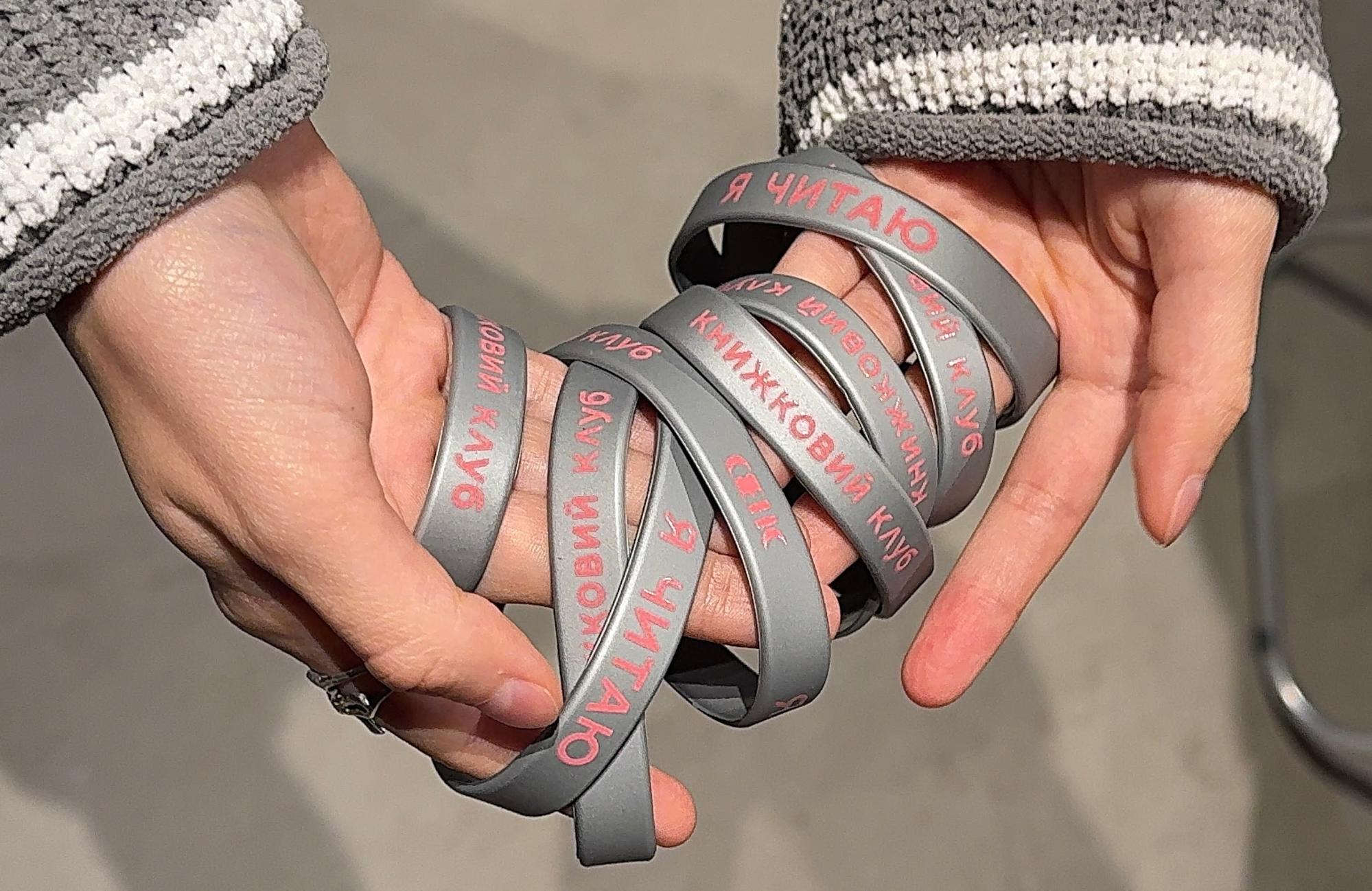
Bracelets of book club members. Photo: SENS
"Making books a part of daily life is our ultimate goal," says Anastasiia Yevdokymova. "While book clubs are a growing trend in Ukraine and worldwide, their popularity surged post-COVID as people sought community and escapism through reading adventures." However, she says book clubs are just part of the solution. Promoting reading will require more effort since it isn't a regular habit for most Ukrainians, and "not every family has the practice of buying books or spending time together with a book (when everyone reads their own)."
In Anastasiia's view, promoting books can often come down to simple actions. Anyone familiar with book clubs, who loves reading and can't imagine life without quality literature, should take responsibility for their reading habits and encourage friends and family to do the same. It's also important to show that reading is cool, modern, and exciting — whether by sharing your enthusiasm with loved ones, engaging your social media audience, or reading in public spaces like parks, cafés, and on public transport. Creating dedicated spaces for book-related activities can further nurture a culture of reading.
For those who have already started or are still hesitating to create their book club, the literary expert recommends watching a discussion with book club founders on the SENS YouTube channel. The conversation offers various approaches and highlights potential challenges.
"To put it simply, all you need to start a club is the desire and two people willing to sit down together and talk about a book they've both read — or even read together and discuss as they go. From there, the possibilities are endless," says Anastasia confidently.
The SENS bookstore's team is confident in its strategic vision and actively promotes a reading culture. It also runs a Telegram channel aptly named "Book Clubs," where it regularly shares updates about offline, online, and other formats of book clubs across Ukraine.
How to join the SENS book club?
- Online: The club sessions are streamed on the SENS bookstore's YouTube channel. Anyone can join the discussion via the live chat, where participants are encouraged to answer key questions, share impressions, or express expectations about the book being discussed. Upcoming sessions are announced within the channel's community section, and recordings of previous meetings are available in the "Live" section.
- Offline: The offline format offers two options: Four people are selected to join the discussion directly at the table with the moderator. The bookstore attendees actively listen and contribute to the conversation. Participants for the panel are chosen randomly from the registered applicants through random.org
Steps to join offline:
- Register: Fill out a Google form (links to the form are regularly updated and announced on the SENS bookstore's Instagram page for the Khreshchatyk location and the book club's Telegram community).
- Make a Donation: The book club is charitable. SENS supports fundraising initiatives and encourages participants to contribute to the current campaign.
- Prepare: Read the book, complete the reading journal, and get ready for a brainstorming session.


